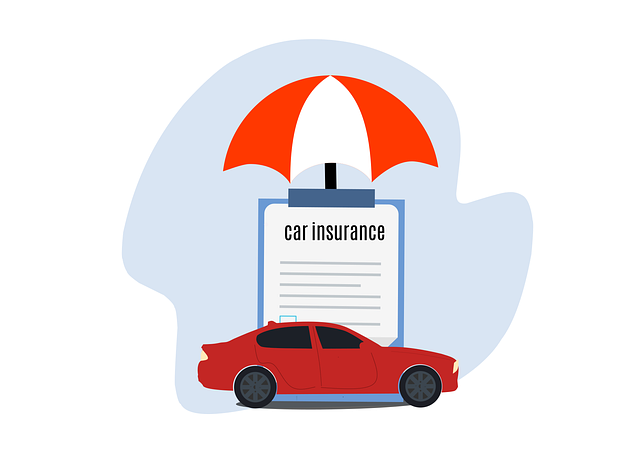Home-based businesses require specialized Insurance Policies for Home-Based Businesses to protect against financial losses and legal issues. These policies go beyond standard home insurance, addressing unique risks like professional negligence, accidents, data breaches, and property damage. Entrepreneurs should assess their business activities and potential liabilities, selecting tailored coverage including general liability, professional liability, and business interruption insurance. Understanding policy exclusions and limitations is crucial for effective risk management, ensuring peace of mind and business stability as ventures grow.
In today’s digital age, home-based businesses are thriving, but with increased flexibility comes heightened professional liability risks. Understanding and managing these risks is crucial for entrepreneurial success. This article guides you through the intricacies of professional liability insurance for home-based ventures, offering insights into essential coverage options, risk assessment strategies, and cost-effective solutions. Discover how the right insurance policies can protect your business, enable growth, and provide peace of mind in an ever-changing market. Explore these key aspects to navigate the world of insurance policies for home-based businesses effectively.
Understanding Professional Liability for Home-Based Businesses

Professional liability, often referred to as errors and omissions (E&O) insurance, is a crucial aspect of running a home-based business. It protects entrepreneurs from financial loss due to professional negligence, such as mistakes, oversights, or poor advice that causes harm to a client. For instance, if a graphic designer misprints a logo or a consultant provides incorrect financial guidance leading to a client’s loss, E&O insurance can help cover legal fees and damages awarded in lawsuits.
Home-based businesses often require tailored Insurance Policies to address unique risks associated with their operations. These policies go beyond standard home insurance and focus on protecting against professional liability claims. By understanding the scope of potential risks and selecting appropriate coverage, business owners can safeguard their personal assets, maintain peace of mind, and ensure their ventures are secure in the face of unforeseen legal challenges.
The Importance of Insurance Policies in Protecting Your Business

In today’s digital era, home-based businesses are thriving and revolutionizing various industries. However, with this growth comes increased risks and liabilities. One of the most crucial steps to safeguard your business is to invest in comprehensive insurance policies tailored for home-based enterprises. These policies serve as a protective shield against potential financial losses and legal repercussions.
Insurance plays a vital role in mitigating risks associated with operations, accidents, or errors made within your home office. For instance, professional liability insurance can cover damages arising from negligence or mistakes in service provision. It ensures that your business is prepared to handle claims and suits, providing peace of mind as you focus on growing your venture. Additionally, general liability coverage protects against unforeseen events like property damage or personal injuries to clients or visitors, ensuring your financial stability in the face of unexpected challenges.
Types of Insurance Coverage Available for Home-Based Entrepreneurs

Home-based entrepreneurs have unique needs when it comes to insurance, as their operations often come with distinct risks. Thankfully, various insurance policies are designed specifically to protect these businesses and their owners. These include general liability insurance, which covers damages from accidents or injuries on business premises; professional liability insurance, safeguarding against claims arising from negligence in services provided; and business income/interruption coverage, offering protection during unforeseen events that disrupt operations.
Additionally, homeowners insurance can be tailored to include specific home-based business needs, providing comprehensive protection. This fusion of policies ensures that home-based entrepreneurs are adequately insured against potential risks and liabilities associated with their operations.
Assessing Risk: Identifying Potential Liabilities for Home Offices

When running a home-based business, it’s crucial to assess risks and identify potential liabilities that could arise from your operations. Your home office might be perceived as a less formal work environment, but it still harbors unique risks. These range from slip-and-fall accidents to data breaches, customer complaints, or even property damage caused by business activities. For instance, if you have clients visiting your home, you’re responsible for ensuring their safety and preventing any mishaps. Similarly, as digital interactions become more common, safeguarding sensitive client information is paramount.
Home-based businesses should consider tailored insurance policies to mitigate these risks. Insurance providers offer specialized coverage for small enterprises operating out of residential spaces. These policies can protect against general liability claims, property damage, professional negligence, and even cyber liabilities. Assessing these potential hazards and obtaining suitable insurance is a proactive step that demonstrates a commitment to managing risk and fostering client confidence in your home-based business.
Choosing the Right Insurance Policy for Your Specific Niche

When setting up a home-based business, selecting the appropriate insurance policy is a critical step in managing professional liability. The right coverage can provide financial protection against potential claims and legal issues that may arise from your specific niche. Different businesses operate in unique environments and serve diverse clients, so there’s no one-size-fits-all solution for insurance policies.
For instance, a graphic design business operating out of a home office might require liability insurance to cover accidents or property damage during client visits, as well as professional indemnity coverage to protect against copyright infringement claims. Conversely, a virtual assistant providing administrative support remotely would need policies tailored to data privacy breaches and intellectual property protection. Careful consideration of your business activities and potential risks is key to choosing the most suitable insurance policies for your home-based enterprise.
Navigating Claim Process and What to Expect After a Loss

Navigating the claim process can be a daunting task, especially after experiencing a loss in your home-based business. The first step is to assess the damage and gather all necessary information related to the incident. This includes documenting any financial losses, taking photos of the affected areas, and collecting contact details of anyone involved or who witnessed the event. Once this initial step is complete, it’s crucial to review your insurance policies for home-based businesses. These policies often provide coverage for various types of liabilities, including property damage, personal injury, and professional errors or omissions.
After reviewing your policy, the next step is to file a claim with your insurance company. This typically involves submitting a formal claim form, along with all relevant documents and evidence. Your insurer will then review the information provided and determine whether the loss is covered under your policy. If approved, they will provide you with details on the next steps, which may include repairs or replacements, medical coverage if applicable, and potentially legal defense costs in case of a lawsuit. Understanding what to expect after a loss can help alleviate stress and ensure you take the necessary actions to protect your business interests.
Common Exclusions and Limitation to Consider in Home Business Policies

When crafting insurance policies for home-based businesses, understanding common exclusions and limitations is vital. Many standard policies exclude coverage for business activities conducted from a residential property, as they consider such settings high-risk due to potential hazards like slip-and-fall accidents or fire origins within the home. Additionally, policies often exclude liability for products sold or services provided by the business owner, unless specific coverage is added through endorsements.
Other limitations include caps on the amount of compensation for damages, which can vary significantly between policies. Some policies may also exclude certain types of businesses, such as those involving food preparation, care facilities, or activities with high physical contact. It’s crucial for home-based business owners to thoroughly review their insurance policies and consider these exclusions to ensure adequate protection aligned with their specific operations.
Cost-Effective Strategies for Maintaining Adequate Coverage

Maintaining adequate liability coverage for a home-based business can be cost-effective when approached strategically. Many insurance providers offer specialized policies tailored to the unique risks faced by remote entrepreneurs. Start by evaluating your specific business activities and potential liabilities. For instance, if you provide consulting services, professional liability insurance is crucial to protect against negligence claims. These policies offer financial safeguard for legal fees and damages in case of professional malpractice.
Consider combining different insurance products to create a comprehensive risk management strategy. Home-based businesses might benefit from general liability coverage to protect against accidents or property damage on your premises, as well as business interruption insurance to mitigate losses during unforeseen events. Additionally, keeping insurance policies up-to-date and reviewing them regularly ensures you have the right coverage for your evolving business needs, helping you stay protected without unnecessary expenses.
